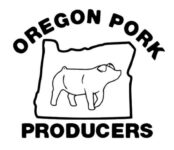National Swine Registry (Hampshire, Yorkshire, Landrace, and Duroc Registry)
Lead the development and implementation of programs and services to enhance the value and influence of U.S. Duroc, Hampshire, Landrace, and Yorkshire swine within all segments of the global purebred industry through avenues of technology, genetic service and youth development.
Certified Pedigreed Swine (Chester White, Spotted, and Poland China Registry)
Certified Pedigreed Swine (CPS) is a unified organization of three historic swine associations, the Chester White, Poland China, and Spotted that share common interest in promotion, breed purity, performance programs and genetic advancement. Cooperating together, CPS is able to jointly offer services and tasks that single Breed Associations or member cannot afford.
American Berkshire (Berkshire Registry)
With more than 300 members across the United States, the American Berkshire Association (ABA) is the official national registry for the Berkshire breed of pigs.According to its mission statement, the ABA has two primary jobs:
- Promote the Berkshire breed of hogs, and
- Maintain breed purity though registration of purebred Berkshires.
National Pork Board
Pork Checkoff
Pork producers and importers pay 0.40 of one percent of the market value of each animal, which is 40 cents per $100 in value. It generates about $50 million per year. Pork producers, through committees and a national business meeting, direct and audit how those funds are used. Approximately 20 percent, a rate recommended by the Pork Act delegates at the National Pork Industry Forum, is returned to state pork associations for their checkoff-funded work and oversight by individual state producer leadership.
The Organization and its Purpose
The National Pork Board was created by an Act of Congress that established the pork Checkoff. The Pork Promotion, Research and Consumer Information Act of 1985 is commonly known as the Pork Act. Pork producers asked Congress to make the Checkoff a mandatory, national program and, in a vote in 1988, affirmed the continuation of the pork Checkoff. The Pork Act outlines how checkoff funds must be used. The National Pork Board collects checkoff on all U.S. produced market hogs, feeder pigs, breeding stock, imported hogs and pork products. The National Pork Board administers programs and allocates Checkoff funds according to priorities determined by those who pay the checkoff. Producer priorities are determined through various methods to identify and prioritize key issues affecting the pork industry. At the national level, programs are administered by the National Pork Board. The Pork Act requires that a percentage of the Checkoff funds collected each year be returned to state producer associations. The National Pork Board is responsible for communicating with pork producers and the public. Communications tools include a quarterly magazine, a radio service with farm broadcasters, newsletters and Internet sites to keep people who pay the Checkoff informed about the programs their investments support.
National Pork Producers Council
The National Pork Producers Council conducts public-policy outreach on behalf of its 43 affiliated state associations, enhancing opportunities for the success of U.S. pork producers and other industry stakeholders by establishing the U.S. pork industry as a consistent and responsible supplier of high-quality pork to the domestic and world markets.
NPPC’s mission is to fight for reasonable legislation and regulations, develop revenue and market opportunities and protect the livelihoods of America’s 67,000 pork producers. Public-policy issues on which it focuses are in the areas of agriculture and industry, animal health and food safety, environment and energy and international trade.
In addition to working on legislation, regulations and trade initiatives, NPPC gets involved in the political process through its political action committee, PorkPAC. The PAC educates and supports candidates at the state and federal levels who support the U.S. pork industry.
NPPC often works closely with the National Pork Board and has formed joint task forces with it on some issues, such as an animal identification system, animal well-being and food safety.
Pork and Health
Win the battle against healthy eating ruts by choosing foods that are delicious and nutritious. And now, pork fans have another reason to dig into the New Year with a happy heart.
Pork Cares
Modern Pig Farming Overview, Antibiotic Use, and Ethical Principals.
Pork Information Gateway
The U.S. Pork Center of Excellence mission is to add value to the pork industry by facilitating research and learning for U.S. pork producers through national collaboration.
The U.S. Pork Center of Excellence was established on July 1st, 2005 for the purpose of bringing about a higher level of cooperation and collaboration among and between universities, the pork production industry, and government. Budget realities and attrition have forced many universities to reconsider their role in providing their pork producer clientele with research, education, and information. The current economic times have resulted in far fewer personnel and programs available for pork producers from their state universities in most cases.
